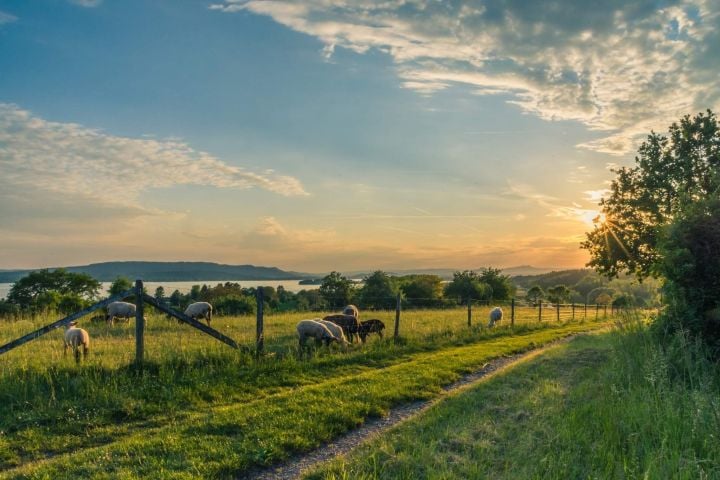
Statistics have shown that recently more and more people are fleeing the city to settle in the country. There are many reasons for this exodus – more living space, a lower cost of living and increased purchasing power, being closer to nature, escaping the threat of infectious disease, and a host of other, often personal reasons.
While unquestionably there are advantages to living in the countryside, if you’re accustomed to city life, the transition to the slower-paced, more laid-back rural life can present a bit of a shock.
If you’re planning to make this move, we don’t want to discourage you. However, we will point out a few things you should consider and a few tips to make the transition easier.
1 – Remote Work
One of the main reasons we’ve been seeing so many people leave the cities for the countryside is the increasing option to work from home. Office workers no longer have to pay for small, over-priced studios in the city and take a long and stressful commute into work. Now, many companies are allowing their employees to do their work from home.
Remote work: it’s nice work if you can get it. However, that in and of itself requires some adjusting, but many articles on the subject can help you learn how to become a successful remote employee.
While remote work does come with its benefits, it does require an extra level of discipline to keep a healthy balance of work and home life. Since the two often converge, it can be difficult to let one overtake the other without proper vigilance.
2 – Shopping and Cooking
While in the city, you may have developed the habit of buying the groceries you’ll need for the day. Or, maybe you’d simply not buy any at all, secure in the fact that you could always go out for a quick bite whenever you felt like eating. However, in the countryside, doing the grocery shopping and preparing the meals requires a bit more forethought.
In the countryside, people often do their grocery shopping once a week at most. People generally cook their meals and reserve going to a restaurant for special occasions. If you’re not a good cook now, you’re going to have to learn if you want to adjust to life in the countryside.
But if you want to take advantage of life in the countryside, you can use all that green space that has suddenly become available to you to start a garden. Growing your food is not only healthy and cost-effective, but it’s ecologically sound and gratifying. If you’re new to vegetable gardening, check out this article from Better Homes & Gardens about how to start your first vegetable garden off right.
3 – A Different Idea of Being Neighborly
It’s easy to get lost in the crowd living in a big city. You can go about your day, live your life, and go relatively unnoticed quite easily. People in the city generally respect other people’s privacy – there are so many people that not doing so would present quite a challenge.
While you could live in the city and never speak to your neighbors – not even know their names – that sort of interaction – or lack thereof – is relatively uncommon in the countryside. At first, it can be jarring. You may feel that your neighbors are nosy, suspicious, or intrusive. However, for them, getting to know their neighbors is simply the way it’s done. And, more often than not, they don’t mean anything by it except an attempt to be friendly and neighborly.
While it is possible to take your guarded, distant approach to others with you into the countryside, by doing so, you would not be fully embracing what it’s like to live in the country. Living in the country means forming tight-knit communities and being open and talkative with those around you. It also means lending a helping hand, sharing the bounties of a garden, and celebrating special moments together.
4 – Handiwork and Home Repairs
People who live in the countryside are expected to tend to their lawns and tend to their homes. A certain amount of self-sufficiency is required. Many people consider this to be one of the perks of country life, but it is one of the challenges for others.
It is rare to find someone living in the countryside who doesn’t know how their home works and how to carry out the seasonal maintenance it requires. Suppose you’ve been living in the city. In that case, you will have these kinds of minor home repairs – fixing the heater, cleaning out the gutters, fixing a leaking roof. Also, changing the hinges on a door – these may be unheard of for you to encounter or, if you did, you called someone to do them for you.
While of course you will be able to call in help if a major structural repair is needed, the monthly or seasonal maintenance issues every home has will end up being your responsibility. There is a great deal of satisfaction in sleeping under a roof you yourself have tended to. However, the kind of know-how that requires – let alone the tools – is not something that can be acquired overnight.
5 – You Are Responsible for Your Own Waste
You probably put your trash in a bag in the city and tossed it in a bin outside your home without giving it much more thought than that. However, in the country, regular trash removal is not that common. Homeowners in the countryside are expected to be responsible for their own trash.
It is common for people in the countryside to compost their organic waste. This is great for the environment and can be especially helpful if you plan to start a garden. As compost creates nutrient-rich soil you can use to grow more vegetables and fruits. If you’ve never composted before, check out this article on 7 easy steps to composting.
6 – Falling Asleep
As counterintuitive as it may seem, when people who recently transitioned from the city to the countryside were asked what the most difficult part of the transition process was for them. An overwhelming number of people cited “falling asleep.”
You may think that without the city noises – the traffic, the late-night party goers passing by – you will be able to fall asleep quickly and finally get a good night’s rest. While that may eventually be true, judging from others’ experiences, it will take several months before that starts to happen.
First, the countryside is far from quiet. It’s just that there are different kinds of noises – usually wild animal noises, which can be unsettling for someone who isn’t used to them. Additionally, many people have dogs in the countryside. They are accustomed to leaving them outside where they communicate with one another through barks and howls. No matter the distance that may be separating them.
Furthermore, without blocks of buildings to stand in the way, the wind has a different way of carrying. Therefore, it brings with it sounds of its own. The wind against a house in the country has a much different sound than the wind passing by an apartment building in the city or even a house in the suburbs. It will most likely take a few months to get used to these country sounds. Also, developing good sleeping habits may not come about overnight – pun intended.
Takeaway
Living in the countryside certainly has its advantages. But it also comes with challenges. For someone used to living in the city, country life requires a bit of patience to adapt to. Don’t expect the transition to be immediately successful. Still, if you stick with it and make the appropriate changes to your lifestyle, it could be a very rewarding and enriching experience.
We hope you found this blog post Transitioning from City Life to Country Life Living, useful. Be sure to check out our post What’s It Like Moving from Living in the City to the Suburbs? for more great tips!
Have Experience in the Moving Industry? Want an Additional Income Stream? Work With All Around Moving!
Partner with us and we’ll help you make money. Click here to learn more.





